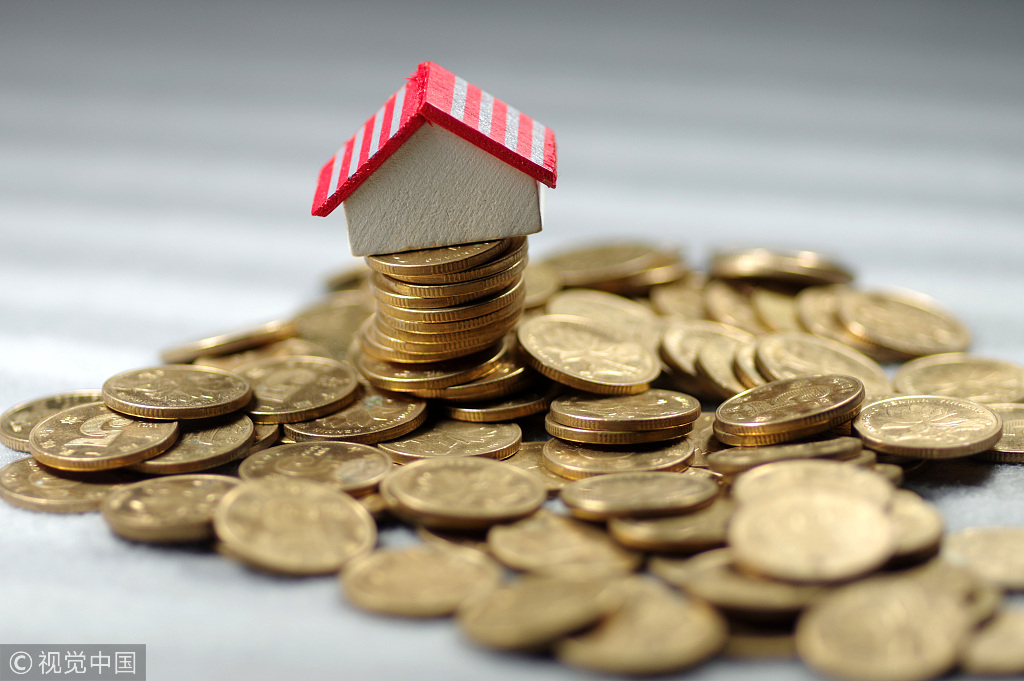
Opinion
13:58, 19-Mar-2019
Will China levy a real estate tax by the end of 2019?
Updated
20:54, 23-Mar-2019
Weng Wuyao

Editor's note: Weng Wuyao is the director of the Institute for Research of Fiscal (Tax) and Financial Laws at China University of Political Science and Law (CUPL). The article reflects the author's opinion, and not necessarily the views of CGTN.
With chairman of the National People's Congress (NPC) Standing Committee Li Zhanshu pointing out on March 8 that the enactment of a real estate tax law is to be implemented this year, the countdown has begun for the introduction of the much-discussed tax in China. In particular, as a property tax, the immovable property tax or real estate tax is a new tax.
Different from the house property tax currently being levied in China, which takes commercial properties as the object of levy, or the urban and township land use tax, which takes land as the object of levy and is levied according to the occupied area, the real estate tax takes houses and land as the object of levy and is levied according to the value of real estate and also includes privately-owned non-commercial properties into the scope of taxation. Therefore, once the real estate tax is introduced, the house property tax and the urban and township land use tax will be canceled.
The necessity of levying a real estate tax in China
China is preparing to introduce a real estate tax in 2019 for the necessity of such a tax in China. First of all, after the Third Plenary Session of the 18th Communist Party of China Central Committee, taxation has been given a greater role. It is no longer just an economic tool, but also the foundation and tool of national governance. In this way, taxation should also play a role in promoting social equality.

VCG Photo
VCG Photo
As the real estate tax is a tax on taxpayers' properties, the levy of the tax plays an important role in correcting the current imbalance in the distribution of social wealth and can also put an end to unreasonably high house prices to a certain extent.
Secondly, from the perspective of tax system reform, the current direction in China is to increase the proportion of direct taxation in order to improve the overall fairness of the tax system, while the personal income tax and real estate tax are the two most important types of direct taxes. In order to make direct taxation account for a bigger share of China's future tax system (measured by revenue), based on international experience, the real estate tax should do the heavy lifting.
Finally, under the current fiscal system of China, local governments have the problem of insufficient fiscal resources, and the lack of local tax varieties is one of the important reasons. Designed as a local tax, the real estate tax is helpful to the protection of local fiscal revenues. So the legislation of the real estate tax is also an important part of the ongoing reform of China's fiscal system.
The feasibility of levying a real estate tax in China
China plans to introduce a real estate tax in 2019, more importantly, because it's feasible to introduce such a tax in China. First of all, the introduction of the real estate tax in China will be carried out under the overall reform of the fiscal and taxation system. Therefore, overall arrangements will be made for the increase and decrease of residents' tax. In recent years, China has taken a number of measures to reduce taxes (and fees). For example, the value-added tax has dropped continuously. Deduction of living expenses from personal income tax, and additional deductions have been increased. The early tax (and fee) cuts will make it easier for the public to accept the introduction of new taxes.

VCG Photo
VCG Photo
At the same time, after the real estate tax is levied, in addition to the abolition of the current house property tax and the urban and township land use tax, the taxes related to real estate transactions will most likely be adjusted, such as canceling or reducing the value-added tax on land, deed tax and other taxes, and lowering the land transfer fee. In addition, since the real estate tax is only levied on houses other than those that meet the basic living needs, the houses of most ordinary residents will not be within the scope of the levy, which helps to alleviate the concerns of the public about the tax burden.
Secondly, although the real estate tax is highly controversial, and there are still different opinions on many tricky issues, such as the formulation or design of the types of houses to be included in the scope of levy, it should be said that the basic framework of the real estate tax has been formulated after years of research, and the different views can be raised and resolved when the draft is made available to the public for comments. Finally, in terms of tax collection and management, the technologies for ensuring the integrity of real estate information and fair evaluation of property value are also well-established.
In view of the above aspects, it is not difficult to see that China is going to introduce a real estate tax in 2019. However, even if the tax is deliberated and passed by NPC, it does not mean that it will be levied immediately across the country. It's up to the local authorities to decide when to levy the tax at the local level.
In a few days, this year's Boao Forum for Asia will be held in south China's Hainan province, with a major topic involving the prospects for China's real estate market. Stay tuned to CGTN for the latest insights.
(If you want to contribute and have specific expertise, please contact us opinions@cgtn.com)

SITEMAP
Copyright © 2018 CGTN. Beijing ICP prepared NO.16065310-3
Copyright © 2018 CGTN. Beijing ICP prepared NO.16065310-3